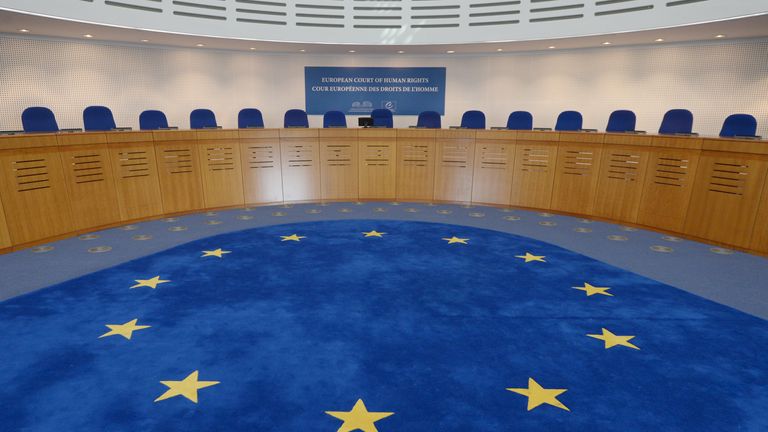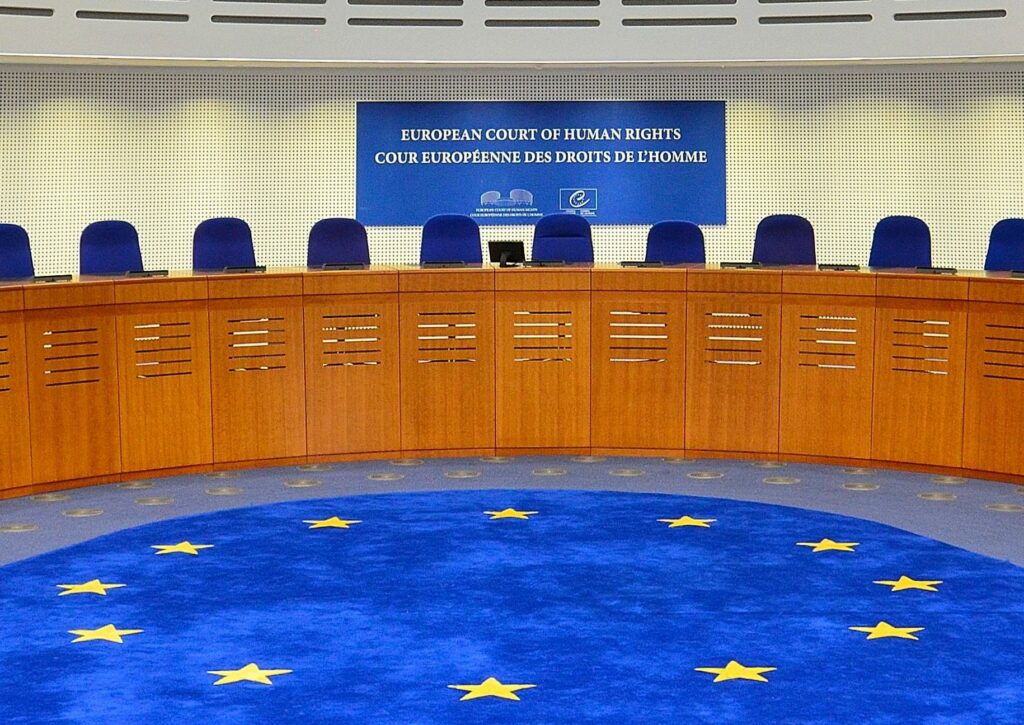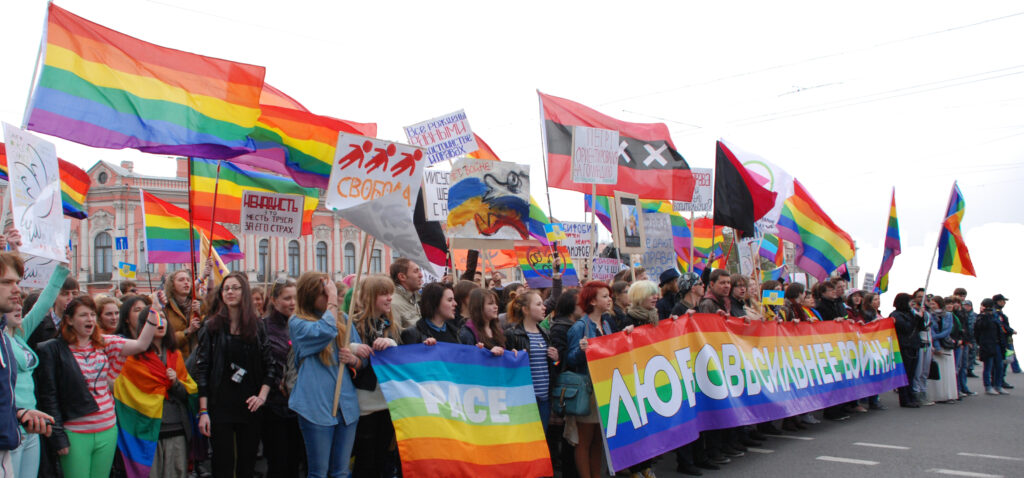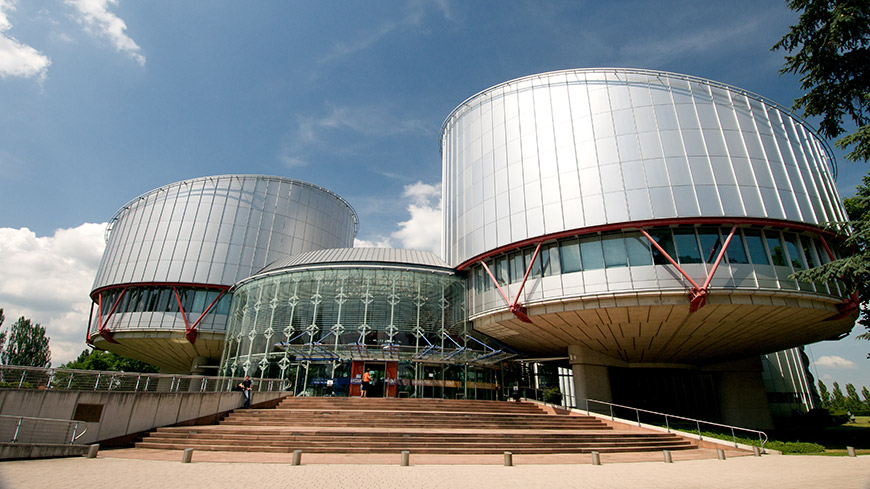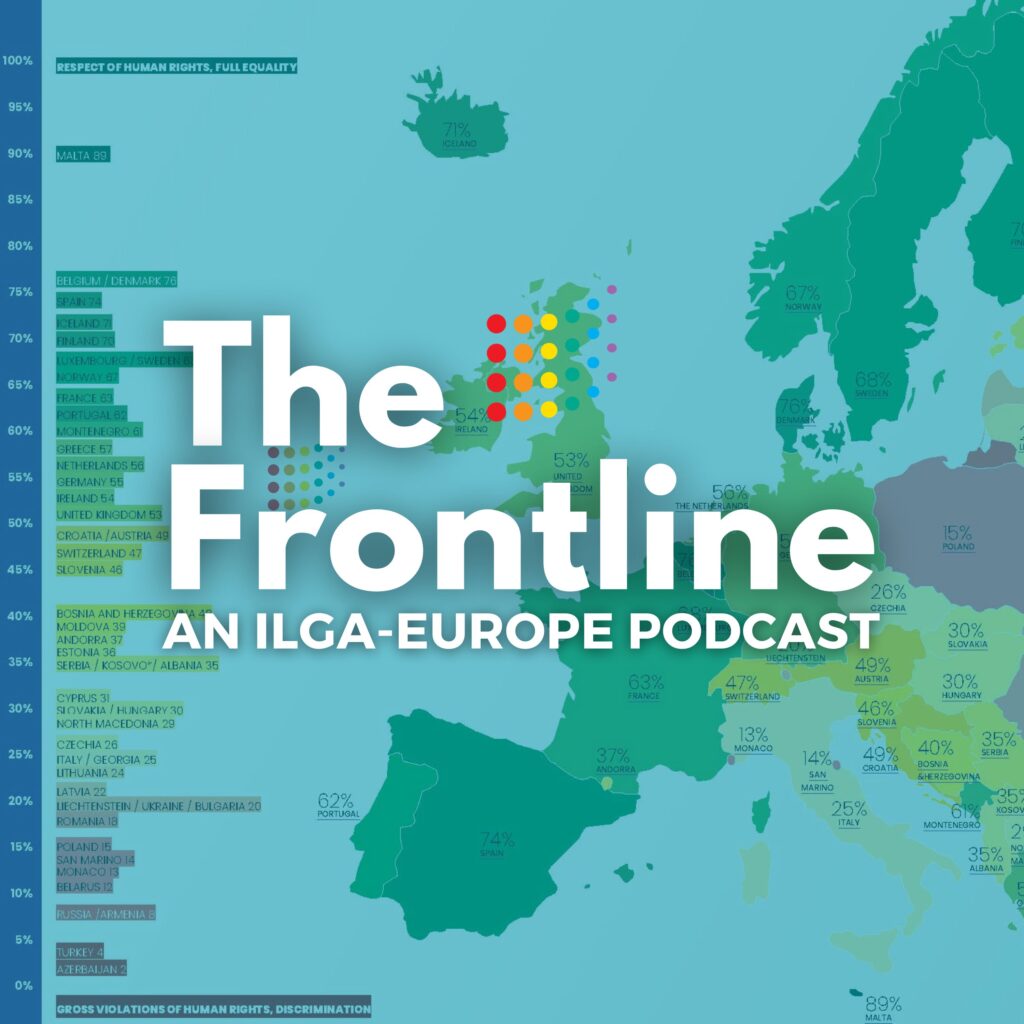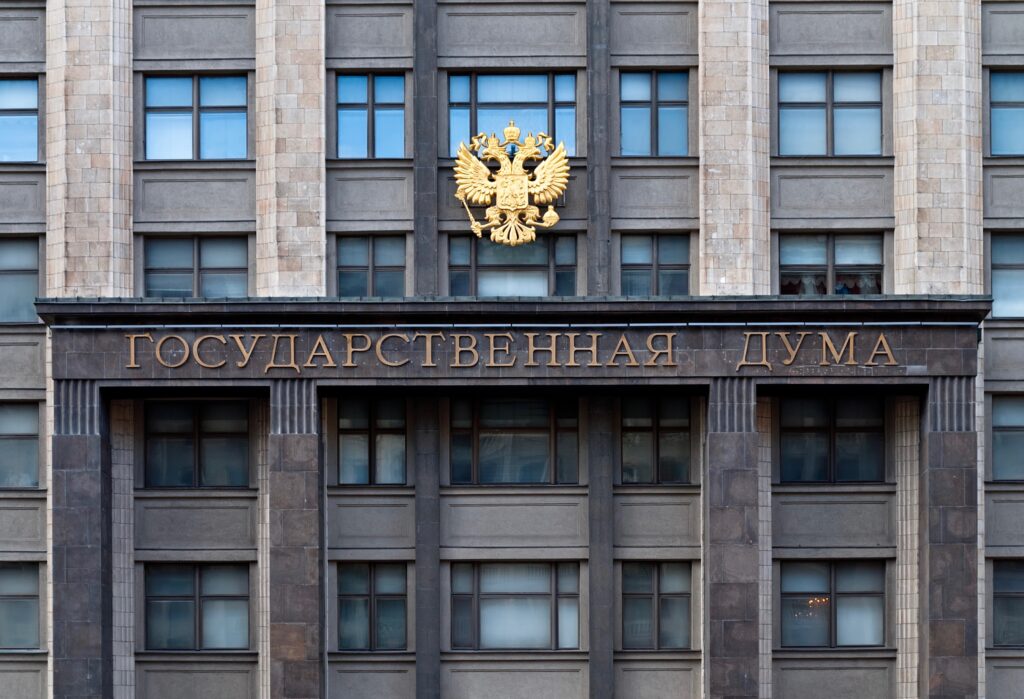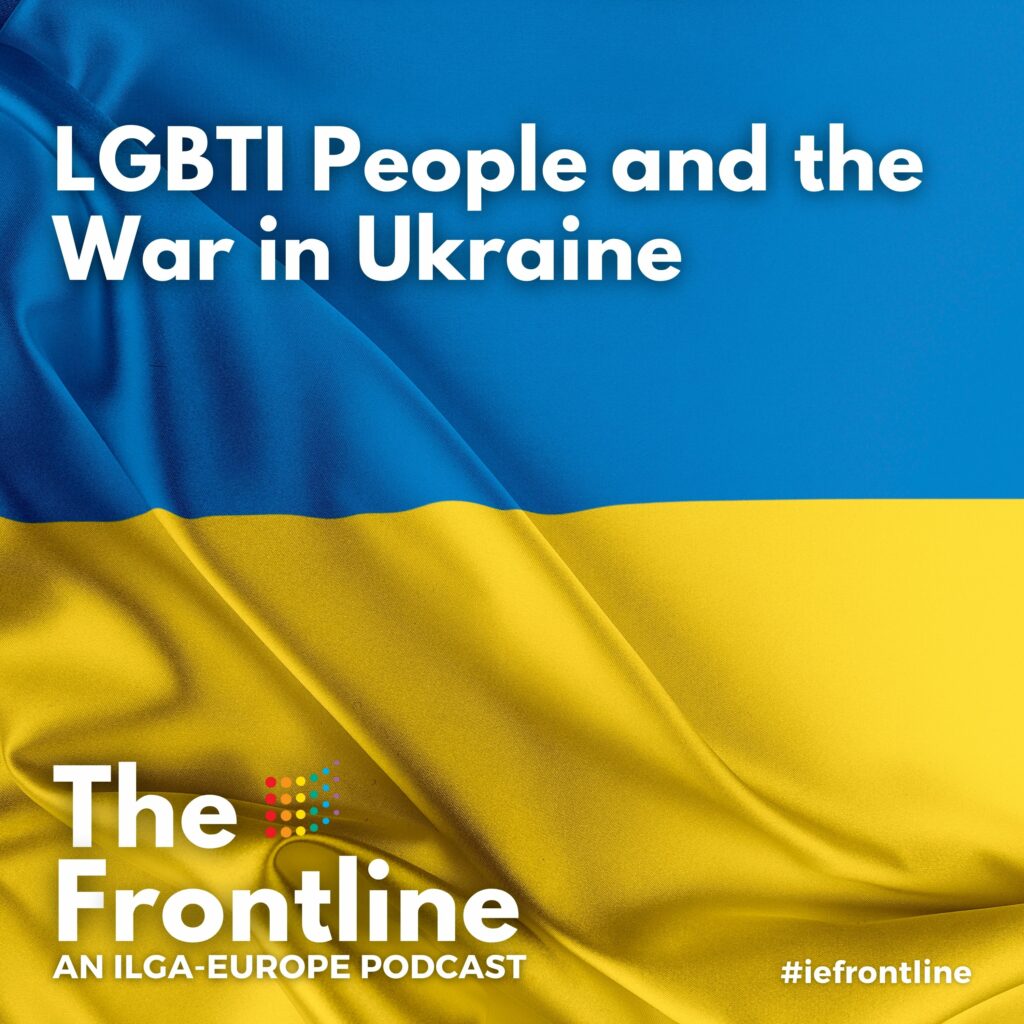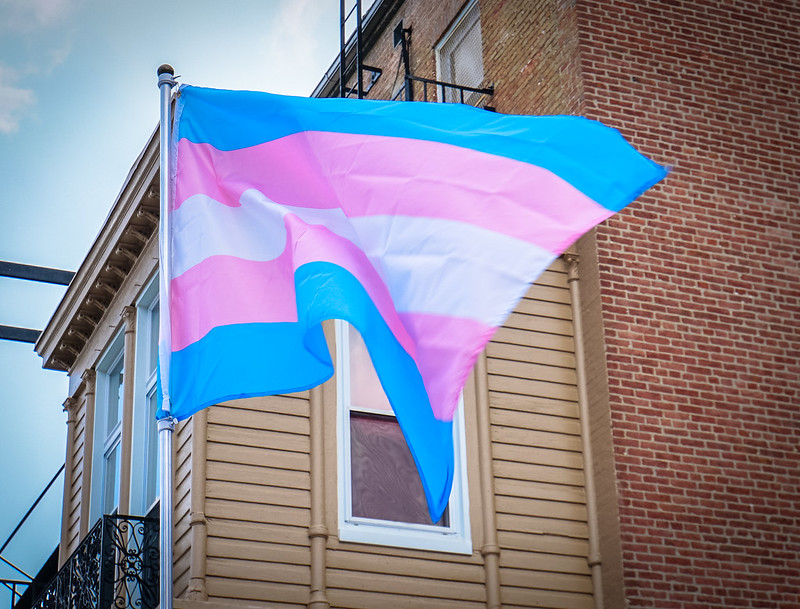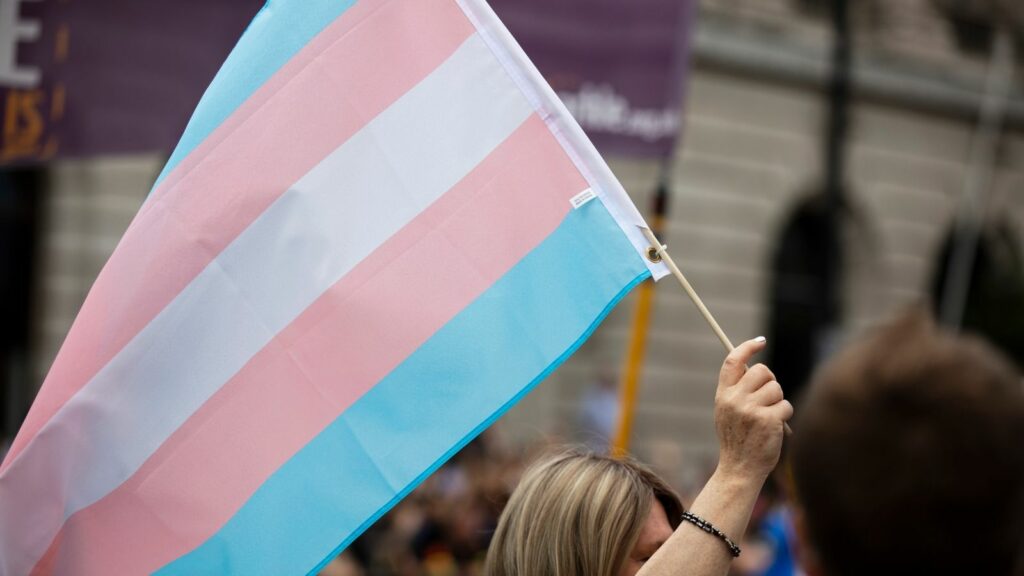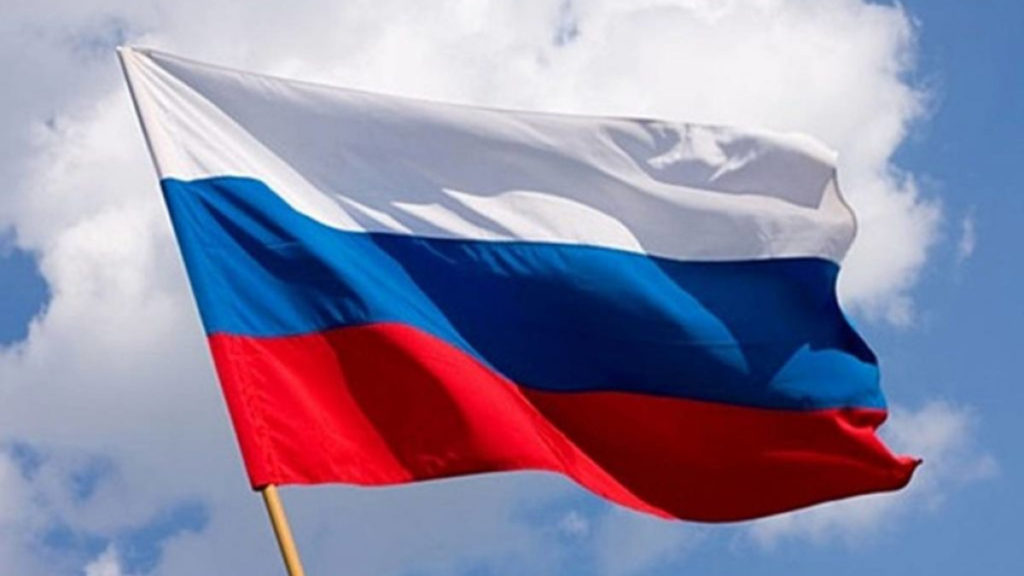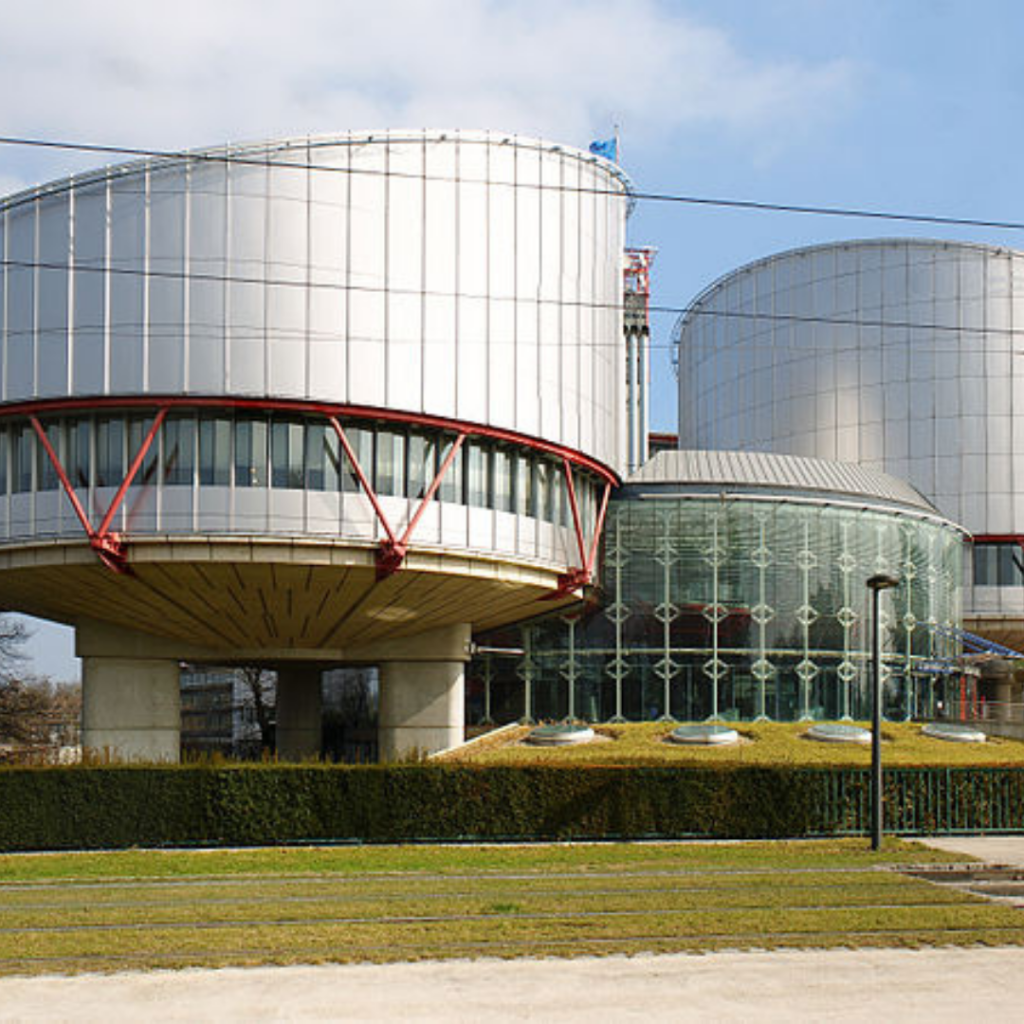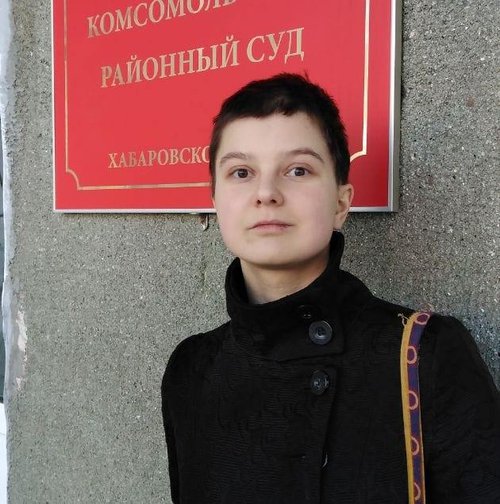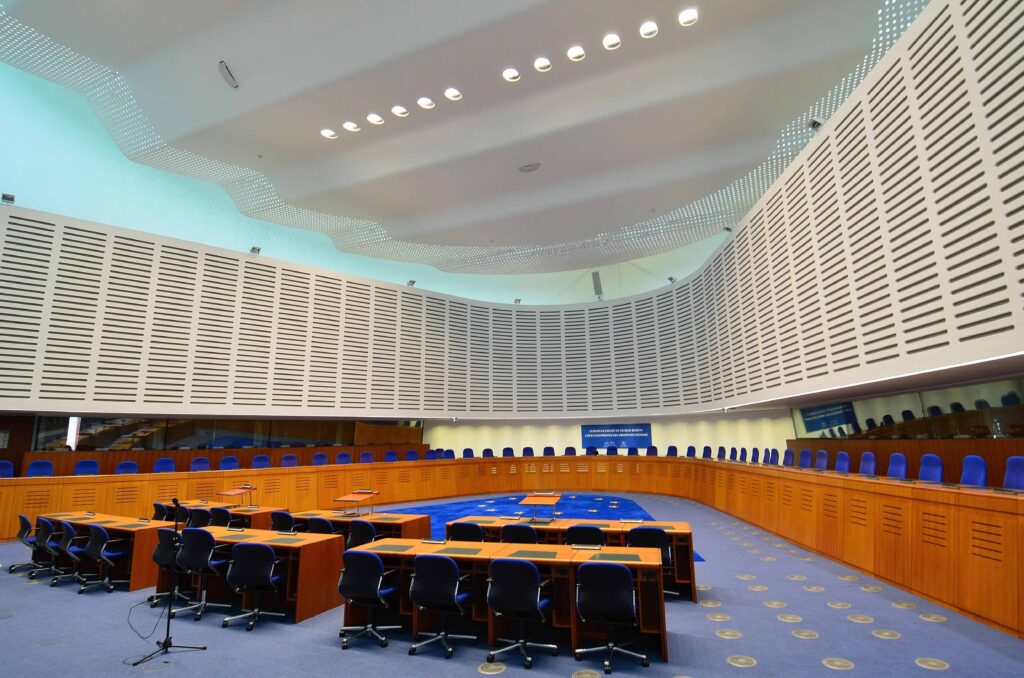Russia
Categories Score
The full bar chart stands for 100%, and is filled by the country category score. The colour display uses the traffic light palette, with Green representing a score closer to 100% and Red a score closer to 0%.
ASYLUM
This category looks into laws that expressly include SOGISC as a qualification criteria for seeking asylum. We also take into account other legislation, policies, instruction or positive measures by state actors that are related to asylum addressing the needs and rights of LGBTI asylum seekers and refugees.
Criteria Compliance Ratio
Each pie charts stands for a category and is divided in slices by criteria. When a country complies with a criteria – fully or in some regions – the slice is coloured.
Keep in mind the criteria have different weighting factor within a category; for example, the criteria Prohibition of medical intervention without informed consent (intersex) stands for half (2.5%) of the INTERSEX BODILY INTEGRITY category weighting factor (5%). Meaning that even if a country can only comply with this specific criteria within the category (1/4 total criteria) the category scores 50%.
More information on the categories and criteria weighting factors here.
Category & Criteria Table
The table lists detailed information and insights on legislation supporting each criterion status. Please use the filters for in-depth analysis.
n/a = not applicable, meaning the criteria didn’t exist in the previous Rainbow Map edition (PROGRESSION column)
- Complies
- Applicable in some regions only
- Does not Comply
RECOMMENDATIONS
In a consolidated authoritarian regime as Russia, lack of legal and policy framework for human rights of LGBTI people is embedded in a bigger picture of restrictions of fundamental rights and freedoms. Not only is the legal protection missing, but people are exposed to arbitrary state actions and prosecutions. Freedom of association, freedom of assembly and freedom of expression are extremely restricted overall.
Focusing on the human rights of LGBTI people in this context, the following measures are the first steps towards upholding basic fundamental rights and freedoms:
- Lifting designation of LGBTI movement as ‘extremist’
- Revoking the ban on so-called propaganda on ‘non-traditional relations’
- Revoking the ban on legal gender recognition (LGR) and establishing functional public procedures to ensure access to LGR
Annual Review of Russia
In our Annual Review of the Human Rights Situation of LGBTI People in Europe and Central Asia, we examine the advances made and provide concrete examples of on-the-ground situations at national level country-by-country in the 12 months from January to December 2024.
Read our Annual Review of Russia below for more details and stories behind the Rainbow Map. You can also download the Annual Review chapter (.pdf) covering Russia.
-
In 2024, access to goods and services for LGBTI people in Russia deteriorated significantly due to intensified state repression and societal discrimination.
In April, the Kino TV channel was penalised by the St. Petersburg district court under Part 2 of Article 6.21.2 of the Russian Administrative Code. The penalty was awarded for broadcasting a film depicting “non-traditional sexual relations” labelled with a “16+” rating, thus allegedly making it accessible to minors.
In May, administrative protocols were filed against the online cinemas Wink and KinoPoisk under the Russian law prohibiting the promotion of LGBTI content, as reported by RIA Novosti.
In September, Moscow’s Tagansky District Court fined the online cinema Kinopoisk twice in one day, for a total of 10 million ruples (99,000 Euro) for the screening of the film ‘Love’ by French director Gaspard Noe. The online cinema was found guilty under the Protocol on “propaganda of paedophilia” on the Internet (Part 2 of Article 6.21.1 of the Code of Administrative Violations) and fined 7 million ruples (69,000 Euro). In addition, Kinopoisk was fined 3 million ruples (29,000 Euro) under the protocol on “propaganda of LGBT and sex change” (Part 3 of Article 6.21.1 of the Code of Administrative Offences).
A joint study by the Sphere Foundation and the human rights organisation Civic Control shows that the prosecution of streaming services and TV channels for showing films or videos under the ‘propaganda’ law was the second largest group of court cases between December 2022 (when the new propaganda law comes into force) and March 2024.
In June, Reuters reported that Duolingo, the language learning app, removed references to “non–traditional sexual relations” from its content in Russia. The removal followed a warning from Russia’s communication regulator, which had flagged the LGBTI content as “extremism.”
-
A gay couple living in Russia faced increasing threats after the Kremlin expanded its anti-LGBTI laws in December 2022. Their social media presence, which had gained thousands of followers, led to complaints about their “propaganda of nontraditional sexual relations.” In 2023, Gogishvili was fined, and Xu was detained in a migrant Centre, awaiting deportation. They eventually fled Russia separately and reunited in France in 2024, where they are seeking asylum.
In January, Antonina Babkina, a transgender girl from Russia who had been granted asylum, committed suicide in the Netherlands.
This is at least the fourth reported case of suicide among Russian- speaking refugees in the country since 2023. This case highlights the challenges faced by LGBTQ+ refugees in Dutch camps, including inadequate psychological support and poor living conditions.
-
In May, former deputy for the Liberal Democratic Party and public figure Roman Khudyakov criticised interviews with feminine men and trans women. Khudyakov notably described such interviews as part of an “information war” promoting “LGBTI behaviour”. As such, he called for further enforcement of anti-LGBTI legislation to criminalise the alleged promotion of LGBTI identities.
In July, the head of the Russian delegation to the Vienna talks on military security and arms control, Konstantin Gavrilov, accused the OSCE of straying from its founding principles of arms control, expressing displeasure at the fact that the OSCE reserved part of its priorities to the protection of LGBTI people in conflicts against the backdrop of a tense international situation.
In December, the European Court of Human Rights (ECtHR) ruled in favor of Alexei Evstifeev, Ruslan Miniakhmetov, and Daniil Grachev, finding that Russian authorities had failed to respond adequately to homophobic statements made against them. The court determined that the Russian government had not fulfilled its obligations to protect the applicants’ privacy or safeguard them from discrimination and highlighted the Russian authorities’ tolerance of openly homophobic rhetoric, which contributes to impunity and an increase in hate crimes.
-
In May, a report by LGBTI groups Coming Out and the Sphere Foundation highlighted that homophobic and transphobic sentiments surged in Russia. The findings highlighted that over 43% of LGBTI people reported violence or pressure due to their sexual orientation or gender identity. According to the report 8% of respondents experienced physical violence, with the rate rising to 12% among trans people, while 24% reported threats of physical violence. Blackmail or extortion, involving threats to release personal information or photos, affected 14% of respondents.
At least 18 police raids in gay clubs and queer parties were carried out in different Russian cities during 2024, according to one of the LGBTI news channels on Telegram. Often, these raids were carried out with violence (see here and here) and the objective of humiliating, detaining and prosecuting patrons for LGBTI propaganda and extremism (see here, here and here). Some of the clubs targeted by these raids were subsequently forced to close.
In March in Minusinsk, two students were verbally and physically attacked by a teenage boy after being questioned about their short haircuts and gender presentation.
In April, two men beat up and robbed a gay man on a fake date in Yekaterinburg.
In July, police officers in Ufa attacked a migrant trans sex worker, beating her and robbing her of 100,000 rubles. The policemen were subsequently sacked and the woman deported.
During the year, 4 anonymous reports of homophobic violence from different Russian cities were reported to Coming Out.
Some cases involved regular family violence, another involved an attack by a stranger on public transport, another reported police violence.
The Russian LGBT network has recorded several cases of ‘fake dates’ against underage men: the perpetrators recorded sex with young gay men on video and then extorted money from them.
-
According to Sever.Reality St. Petersburg, Russian authorities are using abusive methods, including beatings, prayers, and forced injections, to “treat” LGBTI people.
In May, Russia’s first trans politician, Roman Alyoshin, announced his intention to detransition amid an intensifying crackdown on the rights of LGBTI people.
-
A study by the LGBTI group “Exit” surveyed 816 trans people across Russia, highlighting severe challenges following the 2023 ban on gender transitions. Participants reported restricted healthcare access, the inability to change gender markers, and rising discrimination, with many viewing emigration as the only solution despite financial barriers. The study also noted occasional support from some state employees, offering rare positive examples amid the overwhelmingly negative environment.
In May, a study by Russian LGBTI support groups Coming Out and the Sphere Foundation revealed that violence, discrimination, and stress have intensified for LGBTI people in Russia over the past year. The survey found a rise in threats of violence, with 25% of respondents experiencing threats in 2023 compared to 20% in 2022, and violent or hateful acts increased from 30% to 43%. Additionally, one in five cisgender respondents and one in three trans respondents reported being denied medical care, while the proportion of trans people who were denied government services doubled. The report noted that the Volga Federal District ranked third among regions with the lowest risk levels for LGBTI people. Nonetheless, the findings highlighted that the Volga District also had the highest number of respondents who do not disclose their LGBTI identity to their families.
In May, Idel.Realities reported the experiences of LGBTI people from the Volga region after the tightening of anti-LGBTI laws. One respondent, who left Russia in 2021 on a student visa, shared that the growing lack of safety for her and her partner, despite hiding their identities, forced them to flee.
In August, Human Rights Watch released a report examining the repressive legislation enacted by President Vladimir Putin’s government since 2020. The report detailed how these laws have been used to stifle dissent and cripple civil society, severely limiting freedoms of expression, association, and assembly while enforcing state-controlled historical, social, and political narratives.
In November, a survey on attitudes towards homosexuality, LGBTI rights, and “propaganda of homosexuality” in Russia revealed a significant shift toward negative views. More than half of the respondents expressed a negative attitude toward LGBTI people, with only a little over a quarter showing neutral or friendly sentiments. The proportion of Russians who believe that gays and lesbians should enjoy the same rights as other citizens has decreased drastically over the past twenty years, from 50% to 30%. The survey also highlighted widespread concerns, with nearly two-thirds of respondents fearing that their children or grandchildren could be exposed to “propaganda of homosexuality.” More than half stated they would reduce or stop communication with acquaintances if they discovered their homosexuality.
However, the survey noted a small increase in the number of people who report having gay or lesbian acquaintances—10% of respondents, compared to just 3% in 2015.
-
In November 2023, the Supreme Court of the Russian Federation indicated that the use of feminitives—distinctively feminine forms of nouns—could suggest involvement in “LGBTI extremism.” While no administrative or criminal cases have arisen on this point, the ruling has contributed to a broader chilling effect on language use. In response, the Higher School of Economics in Moscow prohibited students from using feminised terms in their written work, further curtailing linguistic expression.
In March, a trans woman reported to Coming Out that a college in Irkutsk refused to replace her education diploma after she changed the gender marker on her passport.
-
In April 2024, Denis Leontovich, an official in Samara’s youth policy agency, was publicly targeted by Russian State Duma deputy Alexander Khinshtein, who shared photos of his alleged gay wedding online with the objective of discrediting him and fueling hatred. Following intense social media harassment and public outcry, Leontovich was forced to resign and ultimately left Russia due to fears of further persecution and legal threats. In October 2024, Leontovich, now living abroad, spoke out against Russia’s anti-LGBTI policies and the ongoing Russia’s war in Ukraine.
In September, a biology and chemistry teacher from Khabarovsk was forced to resign after a video surfaced showing him dancing in high heels, sparking public controversy. In October, he filed a lawsuit against the Khabarovsk education department, seeking reinstatement, and the case is currently ongoing.
In October, two policewomen in St Petersburg were fired for allegedly flirting with each other on social media.
-
The organisers of the Andrei Dementyev All-Russian Poetry Prize have excluded entries from trans people. The organisation stated that, “although submissions are accepted from poets regardless of citizenship, nationality, profession, or residence, those who have changed their gender would be disqualified”.
Following the Kremlin’s intensified push for “traditional values” and its criminalisation of the LGBTI community, those who challenge gender norms or advocate for LGBTI rights found themselves particularly targeted. This includes drag artists who have reported the need to go underground, taking measures to keep performing away from the gaze of authorities.
In March, two patrons of the Sholes bar were charged under the “LGBTI propaganda” law after being reported for kissing in the establishment. Eyewitnesses filed a complaint with the head of the Investigative Committee, demanding action against the bar’s staff for inaction. In May, the bar announced a temporary closure for alleged renovations.
-
In April, in Tula, the mother of an underage girl was reported to the Juvenile Affairs Commission for failing to meet parental responsibilities under part 1 of article 5.35 of the Administrative Code. The daughter was also registered with the police department for minors due to her posts on a Telegram channel, which, according to the law enforcement, included symbols of a ‘banned extremist LGBTI organisation’ and other illegal content.
In September, in Tula, police conducted a “preventive visit” to a 17-year-old boy for distributing ‘symbols of the banned extremist LGBT organisation’ in a Telegram channel. They forced him to delete the content, and registered him with the juvenile affairs department. Additionally, his mother was charged with ‘failure to fulfil or improper fulfilment of parental duties’ under part 1 of article 5.35 of the Russian Code of Administrative Offences.
In September, Russian MPs voted in favour of a bill that would prohibit the adoption of Russian children by citizens of countries that allow legal gender recognition. In November 2024, a court in Moscow dissolved a de facto same-sex marriage for the first time despite the fact that same-sex marriages are not recognised in Russia. The marriage was dissolved between a cis-male and a transgender man who had changed his documents after entering into a same-sex marriage.
-
No public rallies, marches, demonstrations or pickets in defence of LGBT people were held in Russia in 2024. This is largely due to the Russian authorities’ persecution of people for expressing their opinions, which has become much more severe since the start of Russia’s full-scale invasion of Ukraine in February 2022.
-
In March, the Federal Financial Monitoring Service added the “LGBT movement” to its list of terrorists and extremists.
In May 2024, a second criminal case on LGBTI extremism was opened in Russia – against Artem Fokin, the head of the LGBT initiative ‘Irida’ (Samara). He faces up to 10 years in prison for leading an LGBT initiative. This is the only criminal case against the head of an LGBT initiative in Russia so far.
In October 2024, the European Court of Human Rights ruled against Russia’s “foreign agents” law, condemning it as a violation of fundamental rights. The Court found that the law infringed on the right to freedom of association for the LGBT organisation Social Information Centre Action in St. Petersburg.
In 2024, Russian LGBT initiatives minimised offline events due to the criminalisation of LGBTI extremism by Russian authorities.
-
Since the beginning of 2024, the Federal Service for Supervision of Communications, Information Technology and Mass Media has blocked over 170,000 internet pages containing prohibited content. The volume of content blocked for alleged LGBTI propaganda has surged nearly twelvefold compared to the same period last year.
On 29 December 2023, a criminal case was opened against Yaroslav Sirotkin, an LGBT activist from Yaroslavl, for not marking his communications with the status of a ‘foreign agent’ (he had previously been included in Russia’s register of ‘foreign agents’) and not submitting reports as a ‘foreign agent’.
In 2024, at least seven criminal cases were opened for LGBTI extremism. The accused face up to six years in prison, and in some cases up to 10 years. Among the accused are employees of LGBT bars and organisers of LGBT parties, the head of the LGBT organisation Irina (Samara), the director of a medical Centre, the head of a travel agency for gays (in December, he died in a pre-trial detention Centre, the cause of death declared by the authorities was suicide).
The first openly gay politician and municipal deputy from St Petersburg, Sergey Troshin emigrated from Russia to Germany.
Since Russia’s Supreme Court ruling in November 2023 effectively outlawed any discussion or mention of LGBTI rights, activists report a climate of fear and intimidation in the country. The legislative attacks on LGBTI people and their rights, which has been increasing for over a decade, intensified after Russia’s invasion of Ukraine in 2022. President Putin continues to use the war to frame it as a battle against the West, which he accuses of attempting to undermine Russia’s “traditional family values.”
In January 2024, the human rights initiative ‘First Department” gained access to the text of the decision of the Supreme Court of the Russian Federation recognising the non-existent organisation ‘International LGBT Public Movement’ and published it (on 30 November 2024, the Supreme Court of the Russian Federation, having recognised the ‘International LGBT Public Movement’ as extremist, refused to publish the text of its decision). ‘First Division’ published the text and it became known that publishing on the Internet or displaying a rainbow flag is equated to extremist activity. The first offence carries a fine of 1,000 to 2,000 rubles (10 to 20 Euro) or arrest for up to 15 days, while the second offence carries criminal liability up to four years’ imprisonment.
In February, Russian courts handed down the first extremism convictions under the 2023 Supreme Court ruling that labelled the “LGBT movement” as extremist.
On 5 February 2024, prosecutions for LGBTI extremism began in Russia. The first judgement was handed down by a Saratov court against photographer Inna Mosina, who had previously used an image of a rainbow flag in her photographic works. She was fined 1,500 roubles. Subsequently, fearing criminal prosecution, she was forced to leave Russia and obtained a humanitarian visa to live in Germany.
In March 2024, Artem Medvedev was detained by police for two days for an Instagram post against the backdrop of a rainbow flag. The Russian LGBT Network managed to free Artem in court with a fine of 1,900 roubles (19 Euro).
In April, Vedomosti reported that an expert centre had been established in Russia to ensure that published books comply with current legislation.
In April, following a recommendation from the Russian Book Union, three novels were pulled from sale due to their alleged violation of Article 6.21 of Russia’s code of administrative offences. Article 6.21 particularly bans the “propaganda of non- traditional sexual relationships.”
In May, a Moscow university student was sentenced to 15 days in jail for a Telegram post that allegedly featured symbols associated with the LGBTI community.
Reuters reported that two Russian online film distributors, including one owned by Nasdaq-listed internet giant Yandex, have been charged under Russia’s “LGBTI propaganda” law.
The Novosibirsk court fined the Elton John Bar 500,000 rubles for promoting LGBTI propaganda through the use of a rainbow flag. The ruling followed the bar’s involvement in a video by blogger Karen Shainyan, who is labelled as a “foreign agent”.
In July, Russian lawmakers demanded that Sberbank, Russia’s largest bank, remove a rainbow-coloured unicorn from its children’s bank cards. The lawmakers argued that the rainbow is a symbol of the “LGBTI movement.” Following this appeal, Sberbank complied by discontinuing the issuance of the cards featuring the design.
In August 2024, a femaktivist from Ufa was fined 50,000 roubles (500 euros) for publishing a photo of a kiss between her and her friend (a girl) on the internet 14 years ago (before the law banning ‘LGBTI propaganda’ came into force).
In September, a Moscow court sentenced two young men, Timur and Daniil R., to prison on charges of violating Russia’s law on “protecting traditional values.” The case stemmed from a
complaint by a passer-by who reported seeing the men standing naked by the window of their apartment. This incident is one of many recent cases under laws targeting perceived threats to “traditional values,” which have been used to further restrict LGBTI rights and freedom of expression.
In September 2024, the Russian LGBT Network secured the dismissal of two cases of ‘LGBTI propaganda’ against two feminists and LGBT persons from Kazan. The Russian state tried to prosecute them for a photo of their wedding ceremony on Instagram.
In October, Russia’s lower house of parliament gave initial approval to a bill that would criminalize “child-free propaganda”. The legislation, which is part of a series of increasingly restrictive laws, aims to combat what proponents claim are Western efforts to weaken Russia by encouraging population decline.
The bill makes spreading information that advocates voluntary childlessness punishable by fines of up to 5 million rubles (50,000 Euro).
In December, a student from Moscow, was fined 500,000 rubles (5,000 Euro) for sharing five images with LGBTI symbols on her VKontakte page, dating back to 2019. The fine was imposed under Russia’s “LGBTI propaganda” laws, specifically Article 6.21 of the Administrative Code, which penalises the dissemination of LGBTI content online. The student was charged with five separate offenses, one for each image, and fined 100,000 rubles (1,000 Euro) per image. The court’s decision was based on an investigation by employees of the “E” Centre, who reviewed 2,400 photos saved on Christina’s page.
-
Due to pressure from conservative activists, a clinic cancelled a scheduled gender-affirming surgery for a trans woman, despite the fact that the patient had obtained a transition certificate and changed the gender marker on her passport before the law banning gender transitions was passed.
The Coming Out study, published in November 2024, reveal that trans people in Russia are increasingly forced to seek semi-legal or illegal methods for acquiring essential medications, due to limited access to hormonal treatments and medical consultations. There is growing mistrust among trans people towards healthcare providers, primarily due to concerns over confidentiality and the quality of services. This lack of professional support creates significant risks, as incorrect dosage calculations and inadequate care can severely impact the health and wellbeing of transgender individuals.
-
LGBTI activist Zhenya Morris was forced to flee Russia after security forces visited her home and her Queer Compass Telegram channel was blocked by Roskomnadzor (the Russian federal executive agency responsible for monitoring, controlling and censoring Russian mass media) and added to the list of banned sites.
-
In May, the ECtHR ruled that Russia had discriminated against a teacher who was dismissed for posting pictures indicating her sexual orientation.
In October, the ECHR found the inclusion of more than 100 Russians and organisations in the register of ‘foreign agents’ to be discriminatory and unlawful, and awarded them compensation ranging from 10,000 to 1 million Euro.
-
In August, the Russian Computer Sports Federation announced its decision to discontinue holding League of Legends tournaments, citing the presence of LGBTI characters in the video game.
In April 2024, a complaint was filed demanding the expulsion of volleyball player Ebrar Karakurt from the Russian Lokomotiv team due to her being openly lesbian.
-
In March, a Russian court placed two employees of the Pose bar in custody, accusing them of involvement with an “extremist organisation.” The employees could be condemned to up to ten years in prison if convicted of having promoted “non-traditional sexual relations” among the bar’s patrons.
A St. Petersburg court fined Alexei Nazarov 5,000 rubles for referencing an article from ‘Meduza’, calling for activists from Russia and Belarus to address systemic issues faced by women in Russia on his VKontakte page.
In May, Istories published a study by a graduate student from the University College of Dublin’s Law School, which analysed 1,500 court decisions involving “non-traditional orientations in Russia.” The study underscored that over the past two years, Russian authorities have fully criminalised the LGBTI community through discriminatory legislation, leading to increased hate-based violence against LGBTI people.
In a report released in August, Civil Control and the Sphere Foundation examined the law enforcement practices regarding the ban on “LGBT+ propaganda” in Russia. The study analysed 64 court decisions made between December 2022 and March 2024, focusing on administrative articles 6.21 and 6.21.2 of the Russian Code of Administrative Offenses, which prohibit the “propaganda of non-traditional sexual relations” among both adults and children. The report highlighted systemic issues and contradictions in the application of these laws. The report also criticised the independence of experts used by courts, noting that many of these experts were affiliated with state bodies responsible for initiating administrative offense protocols.
In November, Russian security forces raided the “Zebra” club in Voronezh, where a closed LGBTI costume party was being held. According to PostNews, approximately 40 people were present at the event when the raid occurred. Following the raid, a criminal case was opened against the event organisers under the article on extremism.
In late November, Russian police raided several bars and nightclubs in Moscow, enforcing laws criminalising “LGBT propaganda.” During the raids, authorities confiscated smartphones, laptops, and video cameras, and checked the documents of club-goers. Social media footage showed police ordering partygoers to lie on the floor at the Arma nightclub, while another video depicted people being escorted out of the popular gay club Mono with their hands over their heads with a police van waiting outside. The Interior Ministry also reported a raid on a nightclub on Skladochnaya Street for allegedly promoting the “ideology of the banned LGBT movement.”
In December, a trans girl in Moscow was detained by the police at a bus stop and sent to the military registration and enlistment office, as reported by the Sphere Foundation, which supports LGBTI people. The police did not provide an explanation for her detention but stated their intention to send her to military service. The girl was held at the Perovo police department from about 12.30 – 09.00, without food or the ability to communicate. She was then taken to the district military registration and enlistment office, followed by a transfer to the North-Eastern Administrative District of Moscow. At around 21.00, she was sent to the City Assembly Point but managed to escape. However, she was re- detained later that evening and taken to the Pechatniki police department. At the time of writing, the girl’s whereabouts were unknown, and efforts by her lawyer to obtain information from the police were unsuccessful.
The full Annual Review for 2025 is available here.

